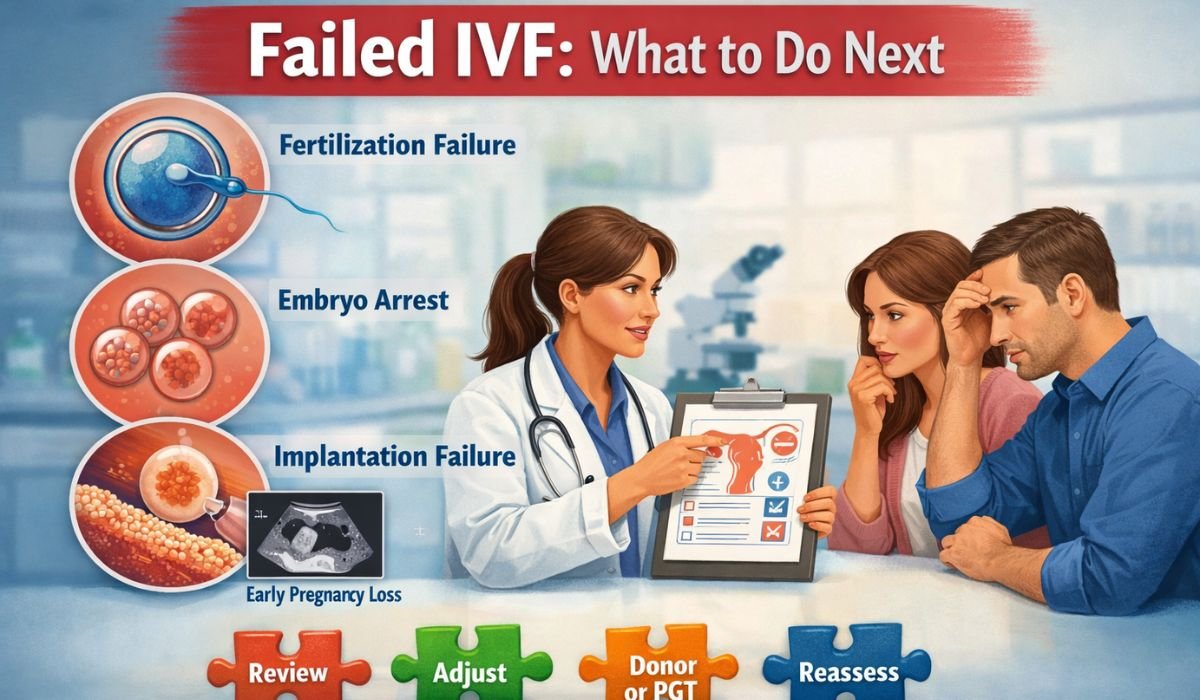


Most people blame luck, fate, or timing when pregnancy doesn’t happen quickly. But the reality is simpler. Your reproductive system depends on stable hormone function, and those hormones respond directly to how you live each day.
If your food quality is poor, your sleep cycle is disrupted, stress is constant, or weight is out of balance, fertility will take a hit. Not because of “destiny,” but because biology works on inputs. When the inputs are wrong, the outcomes suffer.
This article explains how lifestyle affects fertility with clear, evidence-based logic, no myths, no emotional padding, and no vague advice.
Age matters, yes. But it is not the only factor. Hormones control ovulation, sperm production, cycle regulation, and implantation. These hormones are sensitive to diet, stress, sleep, and body weight. If these areas are unstable, fertility becomes unstable. Many cases labeled “unexplained infertility” are often lifestyle-driven. The problem is ignoring it.
Food is not just calories. It’s raw material your body uses to build hormones. A poor diet leads to unstable hormone signaling.
Protein supports egg quality, sperm development, and hormone production. Omega-3 fats reduce inflammation and support ovulation.
Sources: Eggs, paneer, dal, fish, nuts, flax, walnuts.
High sugar and refined carbs increase insulin. High insulin disrupts ovulation and reduces sperm quality.
If your routine includes soft drinks, packaged snacks, bakery items, and frequent restaurant meals, you are directly working against your fertility.
Eat three structured meals daily.
Include a protein source in every meal.
Replace seed oils with mustard oil or ghee.
Keep sugar minimal, don’t completely avoid carbs.
This is not a diet plan. It’s hormone stabilizing.
Hormones require a healthy body-fat balance to function.
How Excess Body Fat Affects Ovulation and Sperm
High body fat increases insulin and inflammatory signals. This interferes with ovulation and reduces sperm count and motility.
Why Being Underweight Disrupts Cycles
Low body fat means low estrogen. That leads to irregular or absent menstrual cycles and weak ovulation.
Practical Weight Stabilization Approach (Not Crash Dieting)
Increase protein intake
Reduce low-nutrient carbs & sugar
Walk 45–60 minutes daily
Maintain consistent meal timing
Crash dieting destroys hormonal balance further. Skip shortcuts.
Reproductive hormones reset during deep, regular nighttime sleep.
The Ideal Sleep-Wake Cycle for Fertility
Sleep between 10:30 PM and 6:30 AM.
Consistent timing matters more than total hours.
Evening Screen Use and Melatonin Suppression
Phones and laptops delay melatonin release. Delayed melatonin disrupts ovulation and testosterone.
Rule: No screens after 10 PM.
If this sounds hard, that means your routine is the problem.
Stress is not emotional talk. It is hormonal interference.
High cortisol blocks ovulation and suppresses testosterone.
If you normalize stress, your hormones won’t.
Work overload
Late-night work culture
No downtime
Relationship and family pressure
Reduce unnecessary workload where possible
Have one daily quiet, screen-free activity
Get sunlight exposure daily
Keep evenings slow and predictable
This is discipline, not meditation retreats. “Research has shown that elevated cortisol directly disrupts ovarian function and testosterone stability (source).”
40% of fertility difficulties are male-side. Ignoring this is outdated.
Smoking
Alcohol more than twice a week
Belly fat
Late-night lifestyle
Zero exercise
Strength training 3–4 times a week
Protein in every meal
Daily sunlight for Vitamin D
Sleep before 11 PM
Limit alcohol and stop smoking entirely
Male fertility responds quickly to lifestyle improvements.
Changes show in 8–12 weeks because sperm cycles refresh.
Sleep by 10:30 PM
Wake up at 6:30 AM
Walk 45–60 minutes daily
Eat home-cooked meals 80% of the time
Protein in every meal
Limit sugar, snacks, and fried food
No smoking, minimal alcohol
Daily 20 minutes of sunlight
One screen-free hour every evening
Do this consistently for 8–12 weeks. Not two days, not one weekend.
Get professional evaluation if:
Periods are irregular
Trying for 6–12 months with no results
Known PCOS, endometriosis, or thyroid issues
Low sperm count or poor sperm motility
History of miscarriage
Lifestyle fixes support fertility. They do not replace medical assessment when needed.
Fertility is not random. Hormones respond to lifestyle.
If your daily habits are chaotic, your fertility outcomes will reflect that.
Fixing the basics consistently is the first step before assuming infertility.
If you’ve been trying naturally for a while and your sleep, diet, or stress patterns have been inconsistent, adjusting your lifestyle is the right starting point. But if cycles are irregular, sperm quality is unclear, or conception is still not happening after consistent changes, it’s worth understanding what your hormone, egg, and sperm parameters actually look like instead of guessing. A medical fertility evaluation provides clarity and saves time. If you want a clear, evidence-based assessment and practical next steps, you can consult the specialists at Rainbow IVF.





Ph: +91-562-260-0537, +91-7060301888
Address: Rainbow IVF 4th Floor, Ujala Cygnus Rainbow Hospital, NH-19, Near Guru ka Taal, Gurudwara, Sikandra, Agra, Uttar Pradesh 282007